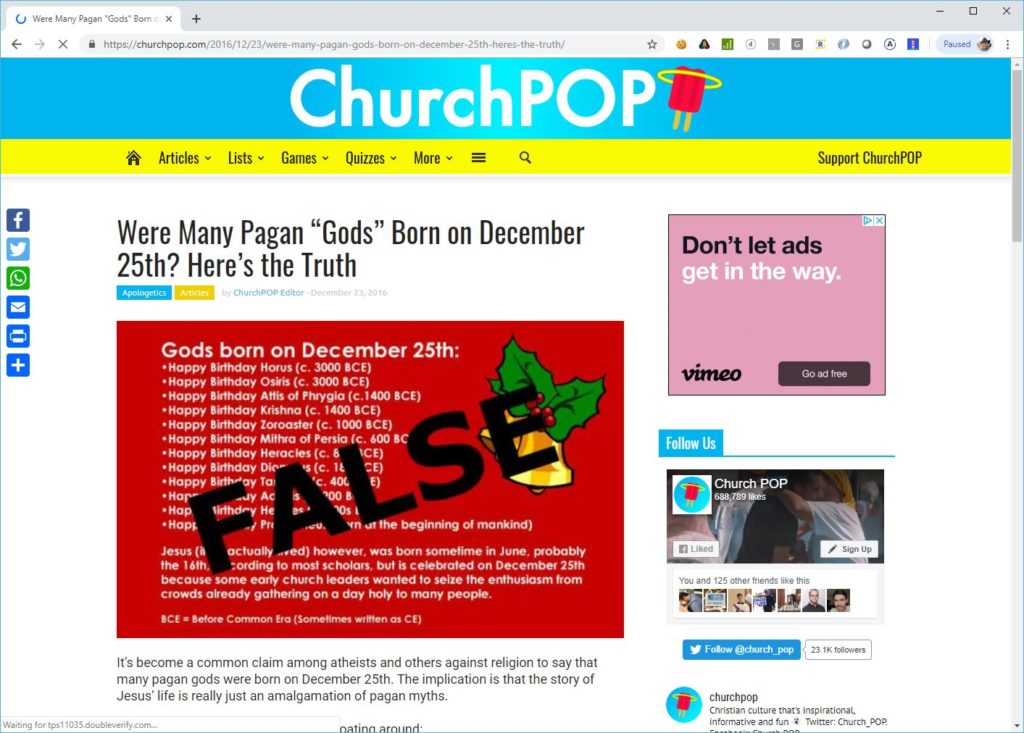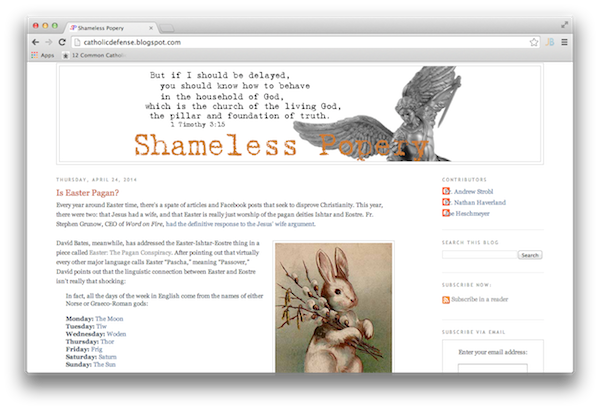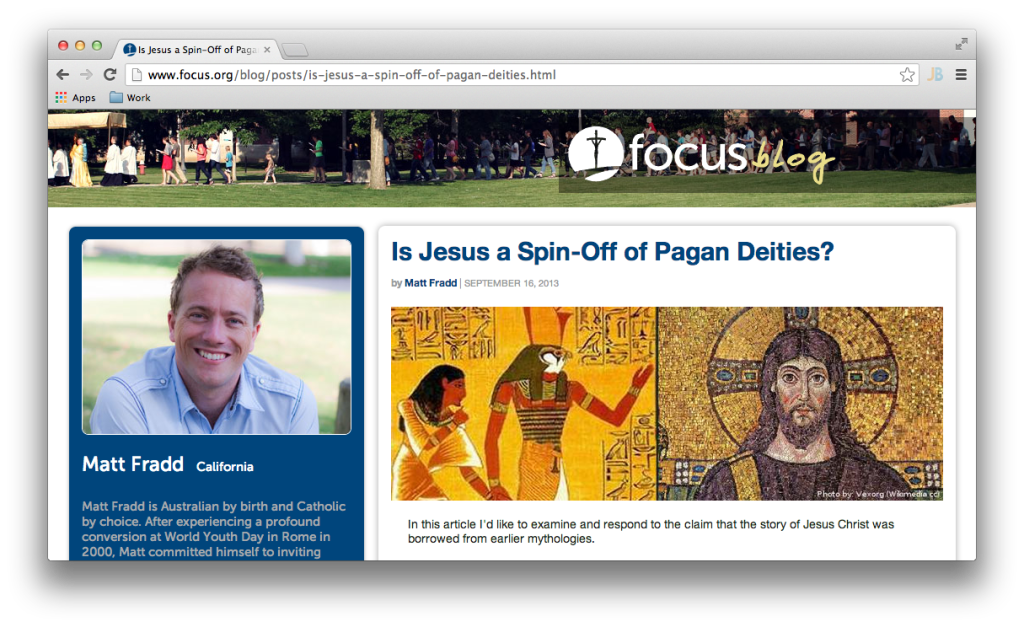Tag: Paganism
Restless Popery
Yesterday on Facebook, Joe from Shameless Popery shared that he had intended to write a post on the supposed Pagan origins of Easter, but that our mutual friend, Steve, had referred him to Easter: The Pagan Conspiracy, a post I wrote on the same subject last year.
Joe had initially said he wasn’t going to write his own defense. Fortunately for us, rather than depriving the world of another of Joe’s excellent articles, he did write his own post on the subject, building off my original entry:
Catholic Church: Established AD 33 or AD 300? (5)
At the moment on this blog, I am responding to a reader who commented on a post I wrote about Mary, Ark of the New Covenant. In my earlier posts, I dealt with her comments concerning Our Lady, but in her closing paragraph she made a number of assertions concerning the origins of the Catholic Church. In these last two posts I would like to respond to these final assertions:
I would suggest you do… more research about the origins of the roman catholic church which comes from pagan origins when it was founded in Rome by Constantine about 300AD. This is well known in history. Constantine was the first pope, and he mixed paganism with Christianity and that is how the Roman catholic church was born. You will find many parallels between the Roman catholic church and paganism.
In this particular post I think I’d like to spice things up with a little help from Barney Stinson. Since Monica has challenged me to investigate history…

Let’s take a look at each of the assertions in turn…
Recycled Jesus
Another of the articles I saw while I was away last month was one from Catholic Answer’s Matt Fradd, speaking about the supposed relationship between Jesus and Pagan deities: Is Jesus a spin-off of Pagan Deities?
Yoga and Catholicism
Today’s post might be a little controversial, but I survived the dating series, so I figure I may as well
I’ve recently been catching up on my Catholic Stuff You Should know backlog. I’ve just finished listening to the podcast episode entitled, Yoga: Is it okay?

Easter: The Pagan Conspiracy
 I meant to write this post in the weeks leading up to last Easter, but I’m afraid it completely slipped my mind. Unfortunately, this meant that when Easter Sunday rolled around and all the “Easter is a pagan festival!” comments started to appear on Facebook and on blogs, I was repeatedly forced to write some off-the-cuff comments in response, rather than having something prepared here to which I could link.
I meant to write this post in the weeks leading up to last Easter, but I’m afraid it completely slipped my mind. Unfortunately, this meant that when Easter Sunday rolled around and all the “Easter is a pagan festival!” comments started to appear on Facebook and on blogs, I was repeatedly forced to write some off-the-cuff comments in response, rather than having something prepared here to which I could link.
I was reminded that I had intended to do this post a couple of days ago while reading an article in the Telegraph. The article in question was talking about how the Church of England has plans to create a new Pagan church to attract new people . Inter-faith dialog is one thing, but this sounds like something quite different. I’m intrigued as to what this’ll end up looking like. We’ll just have to wait and see…
So, I know Easter Sunday has long since passed. In fact, Pentecost has also been and gone and we’re even nearing the end of the Apostles’ Fast. However, I’ve decided to write a quick blog entry here in preparation for next year so that when we’re in the run up to Easter I’ll be ready
A festival by any other name…
The main thrust of most the comments I saw this year was over the word “Easter” itself. It was pointed out, ad nauseam, that the word “Easter” is most likely etymologically related to the word “Eostre”, a Germanic deity from paganism. The “logic” goes that, since the word “Easter” has pagan roots, the celebration itself must also be pagan. Makes sense, right? Err….no.
I’ll admit that when I see such comments I get a little irritated because I don’t think they’ve really thought through what it is that they’re saying nor have they applied their position consistently.



